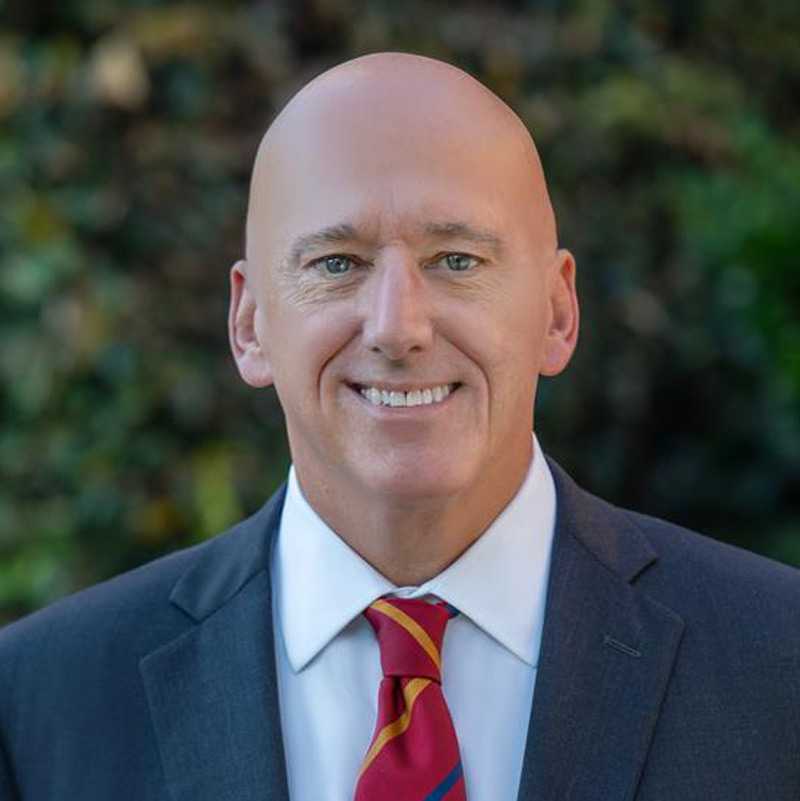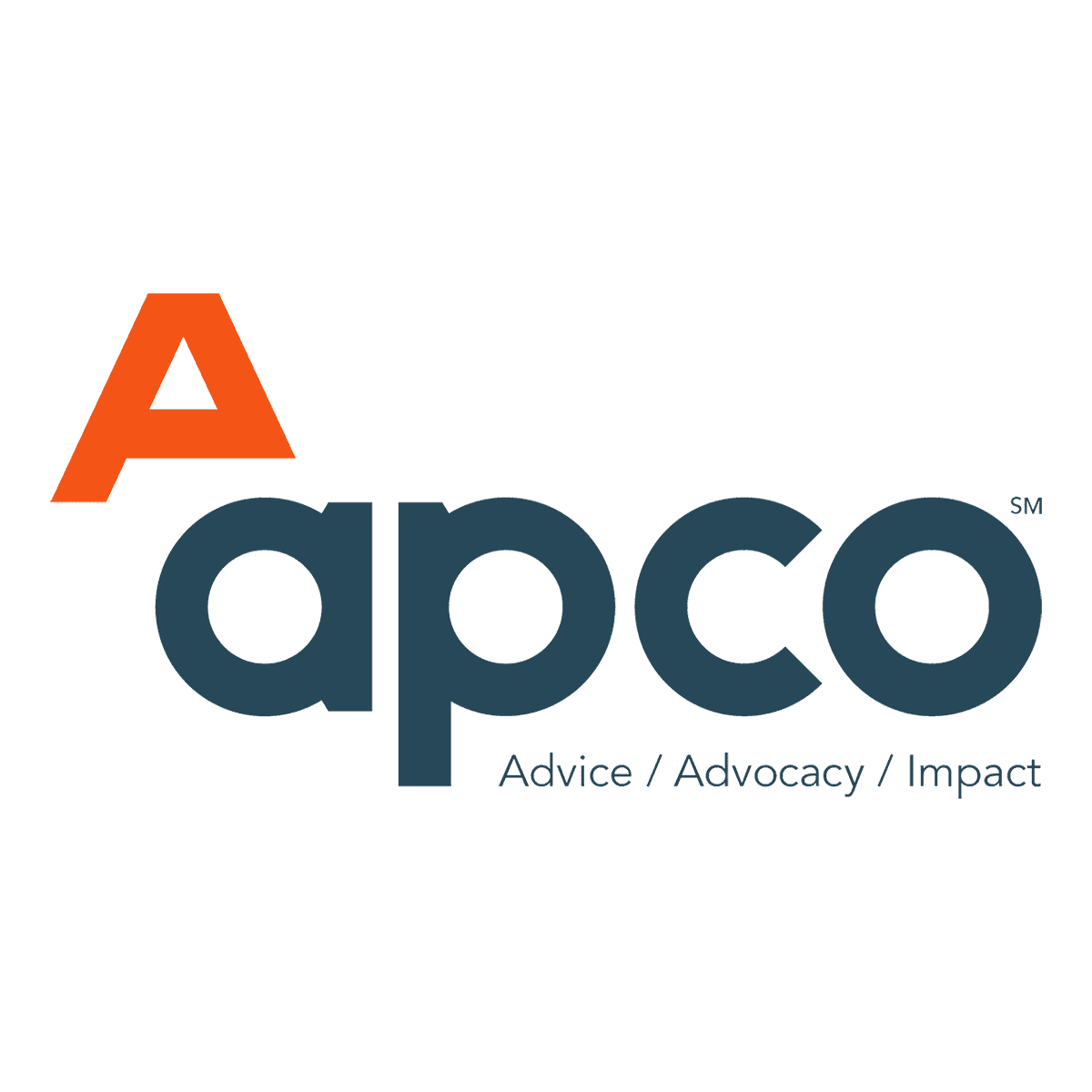

Jason Meyer, APCO Alum, lead this conversation.
Kelly Williamson (KW) is the President of APCO Worldwide’s North America region. In 2020, she spearheaded the creation of Accelerate What’s Right, APCO’s dedicated effort to advance racial equity and justice within our company, client initiatives and society.
Jason Meyer (JM) leads Accelerate What’s Right; he also leads APCO’s D.C. Corporate Communications Practice and previously co-chaired APCO’s North America Diversity, Equity and Inclusion (DEI) Council. In addition to having spent significant time living outside the United States, Jason continues to love learning about new cultures by traveling as often as possible.
The two came together to discuss the role of leadership in creating impactful, lasting change, and how leaders can instill a sense of bravery/empowerment across the entire culture of a company. The prompt of their conversation was “What is the role of leadership in driving change at APCO, especially as it relates to DEI and racial equity?”
JM: Real change doesn’t happen by chance or wishful thinking. It’s driven by a collection of intentional and imaginative ideas that push people outside of their comfort zone and the status quo. In the case of racial equity, we have to be clear-eyed that the status quo comes at the expense of entire communities of people. When leaders acknowledge and commit to action that changes such dynamics, it can really orient the direction of a company down a new, more just path.
KW: By the sheer nature of it, a vision for Accelerate What’s Right has to be aspirational and not easy to achieve. Our vision is to address systemic racism and end discrimination. The solution to achieving this vision isn’t readily known and likely makes some slightly uncomfortable about how we get there. This is exactly where we want to be to drive behavior change, and as leaders we must constantly use that as the lens through which we make choices.
JM: I think that the real ways to create deeper, sustainable change of mindsets among leadership comes with clarity about what leaders are being measured on and rethinking their incentives. Granted the goodness of everyone’s heart is a factor, but you see more long-term change tied to culture and operations when it aligns to business goals and the measurement of specific outcomes.
KW: Exactly. We’ve seen how tying DEI and racial equity key performance indicators to the business and our processes/policies can create more alignment for APCO internally. It’s about systemic change—fundamentally changing how we operate so that we can see where we’re doing well and where we’re coming up short. An honest look at where you are today isn’t always easy. But with clear eyes, we can drive a shared commitment to how we will evolve to make progress.
JM: Part of leadership is creating an environment where people feel comfortable enough to speak up and know that on the other end of that conversation, there’s someone listening that will act on an idea or feedback. I love that this is the culture we’ve worked hard to create at APCO.
KW: Yes, and it remains on our leaders to advance that environment. No one will come to me to call me out or tell me they think something could be different if I haven’t already proven that I’m trustworthy, and that I’ll value their input. I try to create this environment by showing up, creating opportunities for conversations and really reinforcing with my teams that I value their push back, or direct challenges in some cases, too. It’s also about clear communication about our values, and what behaviors are rewarded.
JM: With clear communication, accountability can thrive. Region-wide communications and changes signal to our people that we [as leaders] are committed to operating in a different way. Communication is also key to letting people know what they should expect, in terms of milestones and measurement.
KW: The mark of the type of person we want at every level of the company is someone who’s willing to pick up the phone, reach out and tell even the most senior person that “we don’t know what we don’t know.” It’s brave to call a leader up and tell them what you think, and it’s bravery that helped the leader create that kind of relationship with their teammate. Jason, how do you instill this sense of bravery/empowerment across the entire culture of a company?
JM: I would say it starts with “active listening”—the process that converts what we’re hearing from our colleagues into action, whether that’s role modeling what idea-sharing should look like, communicating when new ideas are embraced within the organization or celebrating the bravery of our colleagues to step forward and offer new perspectives. For instance, I was enthused when a few young colleagues raised with regional leadership that they would like to see a more diverse panel composed for an internal event we hosted. Their idea energized us to rethink the dynamics of the panel and bring in new voices to offer perspectives that resonated with a wider array of colleagues.
JM to KW: As the leader of the region, have you perceived any barriers to people embracing what we’re trying to do with Accelerate What’s Right?
KW: Direct feedback is at the center of how I believe you allow people to grow as individuals. One of the barriers that I see improving is the comfort individuals feel in sharing direct feedback among one another when they notice that something needs to change. This is especially true when it comes to levels of seniority and ensuring that even our youngest talent feels they can go directly to senior leaders and communicate areas for growth. We have to invest in this culture at all levels.
JM to KW: We could be investing our resources into many unrelated areas—why is advancing racial equity and inclusion at APCO a priority?
KW: Last year, being isolated and watching what was happening in the summer, it was a moment of experiencing something in my life that I’d never encountered before. We have the opportunity to marshal our assets, say “enough is enough” and act on an agenda that shows people their voice matters. If we’re not working actively to create that environment, then shame on us.
JM: Living through these moments for years and not being exceptionally vocal about how deeply each incidence of outright brutality impacts me (and many of my peers) on a personal and professional level is a heavy weight to carry. It’s interesting to see how Accelerate What’s Right and other changes in how we operate have created a space for more productive conversations within APCO to take place.
KW: We have to be really intentional where we want to see change—keeping focus at the forefront, precisely because of that reason.
JM: When we committed to Accelerate What’s Right, there is something highly relevant here in the sense that a communications consultancy should be working to elevate the voices and work of those who have been striving to break through but may have no platform. Creating opportunities and platforms for marginalized voices is the least we can and should do. We have the resources and ability to create change. We must do it, or shame on all of us.
KW: What worries me the most is if we do not remain laser focused, and we take our eye off what we have planned to do to create real change through our institutional resources. It’s year on year change, keeping the commitment and the tenacity at the forefront. The only way it works is to ensure our people at all levels in the company understand where we’re headed, what we’re going to prioritize in that year, and what change we expect to create.
JM: I guess we’ve got our work cut out for us. Stay focused on our commitments and how we accelerate what’s right through measurable progress.


